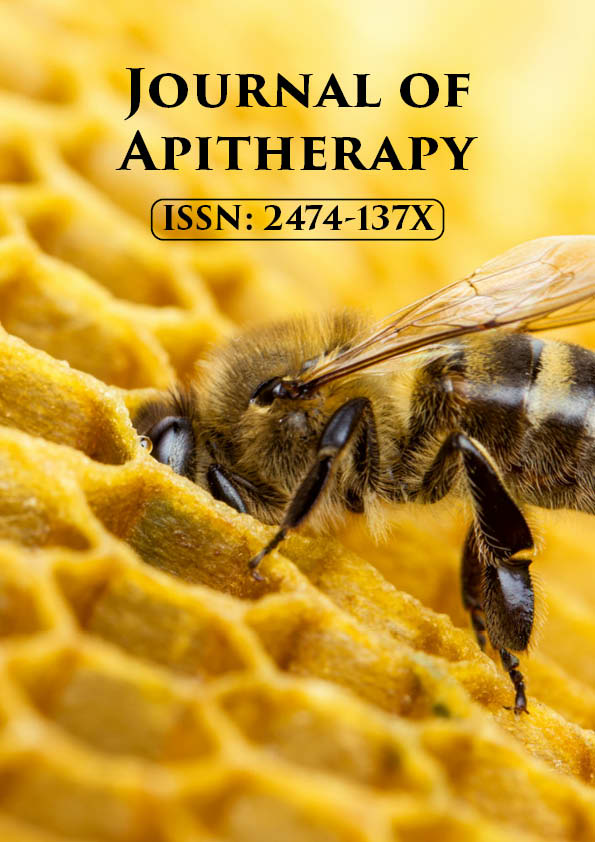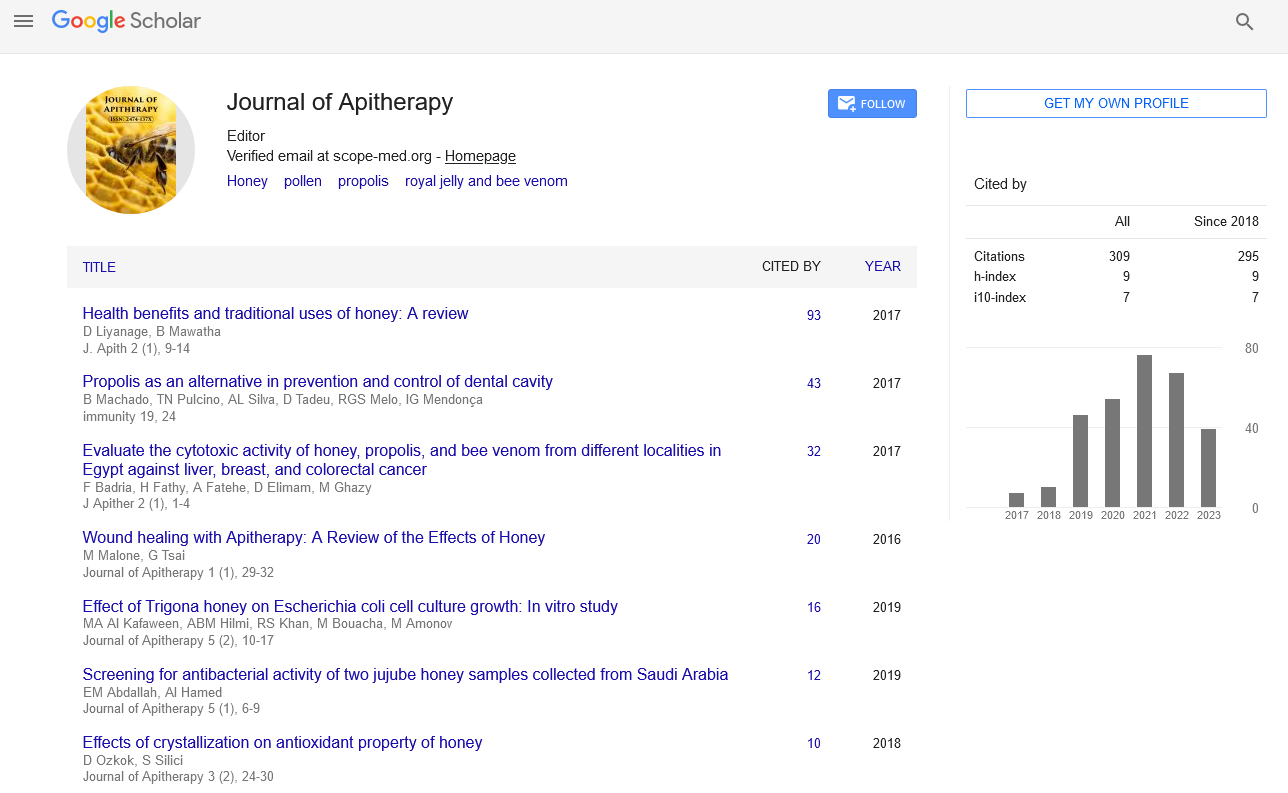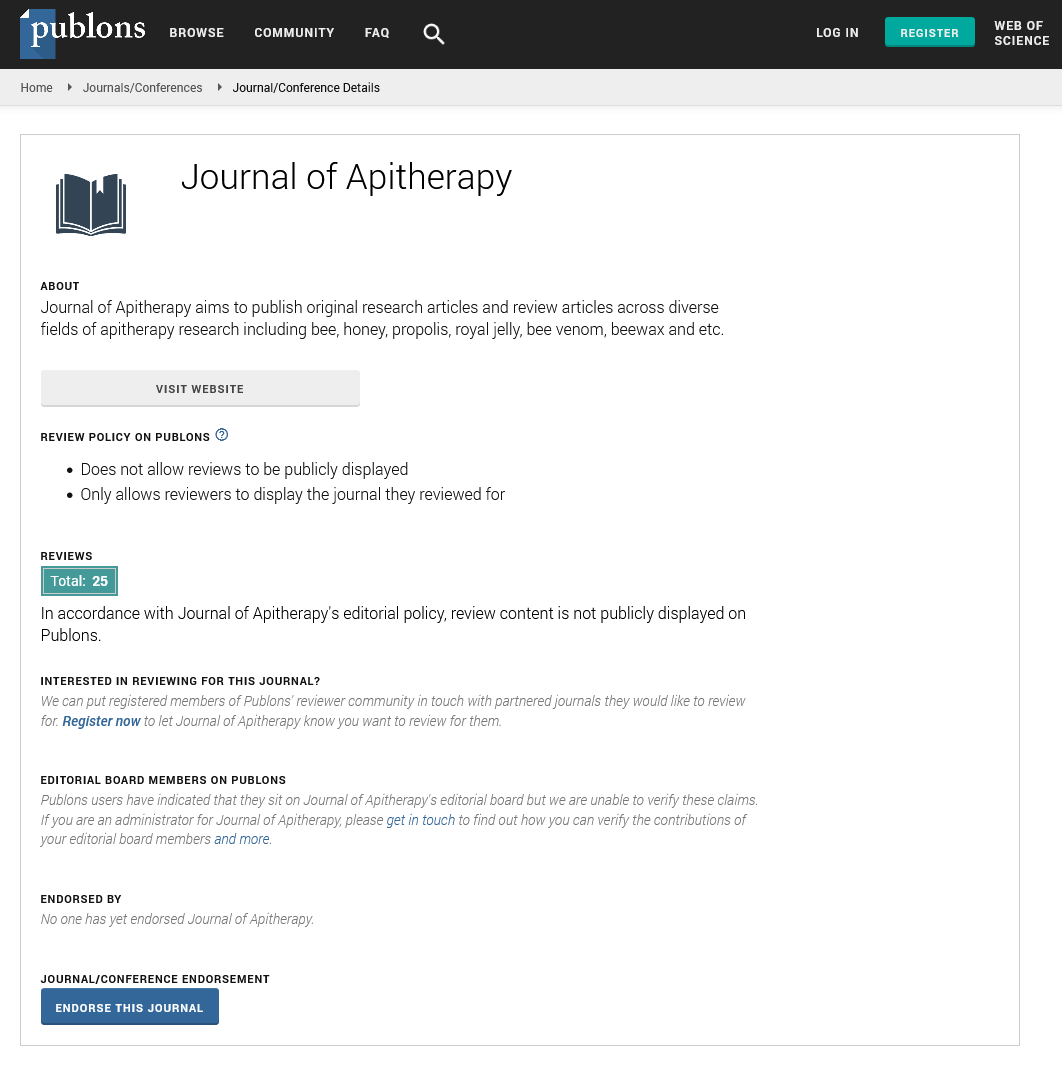Commentary - Journal of Apitherapy (2023)
Honeybee Pollen: Natureâs Superfood and Its Health Benefits
Filippo Fratini*Filippo Fratini, Department of Agriculture, University of Helsinki, Helsinki, Finland, Email: filepso.fratini@unipi.it
Received: 03-Jul-2023, Manuscript No. Japitherapy-23-110031; Editor assigned: 06-Jul-2023, Pre QC No. Japitherapy-23-110031 (PQ); Reviewed: 20-Jul-2023, QC No. Japitherapy-23-110031; Revised: 27-Jul-2023, Manuscript No. Japitherapy-23-110031(R); Published: 03-Aug-2023
Description
Honeybee pollen, a lesser-known treasure collected by bees during their foraging expeditions, has recently become the focus of a burgeoning field known as “pollenomics.” This intricate discipline seeks to unravel the nutritional richness and potential health benefits of bee-collected pollen. Often hailed as a superfood, honeybee pollen offers a captivating blend of vitamins, minerals, proteins, enzymes, and bioactive compounds that have implications for human health, nutrition, and even environmental understanding.
A journey into pollen collection
Pollenomics delves into the fascinating journey of honeybees as they meticulously collect pollen from flowers. Bees transport pollen back to the hive, where it is compacted into granules using nectar and enzymes. This nutrient-packed pollen becomes a vital food source for the colony, supplying essential nutrients in developing larvae and sustaining adult bees.
A nutritional powerhouse
Honeybee pollen is often hailed as a nutritional powerhouse due to its diverse composition. Analysis reveals its abundance in proteins, amino acids, vitamins, minerals, enzymes, and lipids. Notably, bee pollen contains all the essential amino acids required by humans, making it a potential protein source with a well-balanced amino acid profile.
Bioactive compounds and health implications
Beyond its basic nutritional components, bee pollen is rich in bioactive compounds such as polyphenols, flavonoids, and antioxidants. These compounds contribute to its potential health benefits, which range from immune system support and anti-inflammatory effects to antioxidant protection and potential anticancer properties.
Environmental and botanical insights
Pollenomics extends beyond human health considerations. The study of bee-collected pollen provides valuable insights into the botanical sources in a given area, shedding light on plant diversity and bloom periods. This information aids in understanding ecosystems, tracking environmental changes, and assessing the impact of land use on local flora.
Applications in functional foods
Pollenomics has spurred interest in incorporating bee pollen into functional foods and supplements. Bee pollen’s unique nutritional profile makes it a candidate for enriching products with additional vitamins, minerals, and antioxidants. Its potential in promoting gut health, boosting energy, and supporting overall well-being has led to its inclusion in various food formulations.
Challenges and research horizons
While pollenomics opens doors to innovative applications, challenges exist. Standardizing pollen samples, ensuring quality control, and addressing potential allergic reactions are among the considerations. Additionally, further research is needed to understand how bee pollen’s nutrients and bioactive compounds interact with the human body and contribute to its reported health benefits.
Ethical and ecological considerations
As the interest in bee pollen grows, ethical considerations emerge. Beekeepers must carefully harvest pollen to ensure sufficient supplies for the hive’s nutritional needs. Additionally, preserving bee populations and the habitats of the plants that provide pollen is crucial for sustainable pollen collection.
In conclusion, honeybee pollenomics uncovers the intricate web of nutritional intricacies present in bee-collected pollen. This field of study not only holds promise for enhancing human health through functional foods but also provides insights into environmental dynamics and botanical interactions. As researchers continue to unearth the complexities of honeybee pollen, its potential to bridge the realms of nutrition, health, and ecology remains a compelling journey, enriching the understanding of the intricate relationships that sustain in the natural world.
Copyright: © 2023 The Authors. This is an open access article under the terms of the Creative Commons Attribution Non Commercial Share A like 4.0 (https://creativecommons.org/licenses/by-nc-sa/4.0/) This is an open access article distributed under the terms of the Creative Commons Attribution License, which permits unrestricted use, distribution, and reproduction in any medium, provided the original work is properly cited.







